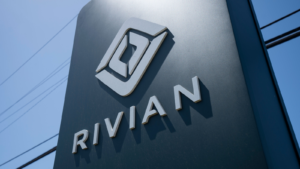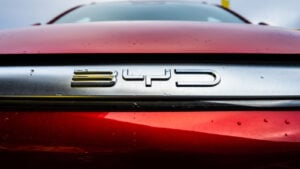Boding well for the U.S. auto sector, the space’s new vehicle sales jumped 8.8% last month versus April to 1.44 million. The figure also represented a 5% increase versus the same period a year earlier. And for the first five months of the year, sales climbed 3/5% compared with 2023. Meanwhile, the fact that inflation was flat last month, spurring a decline in interest rates, was very positive for the sector.
Not only will easing inflation increase Americans’ spending power when they buy vehicles, but lower interest rates will make purchasing automobiles cheaper for the lions’ share of consumers who take out loans to finance their purchases. Meanwhile, in another piece of good news for the sector, EV registrations jumped 14% in April versus the same period a year earlier to 102,317.
Although the increase was partially spurred by price cuts, the data point shows that many Americans, contrary to the opinion of EV skeptics, are ready, willing, and able to buy EVs. Here are three top auto stocks to buy now.
Carvana (CVNA)

The Street appears to be becoming more bullish recently on online auto dealer Carvana (NYSE:CVNA). CVNA stock jumped nearly 50% between April 17 and June 20, while two banks recently issued upbeat assessments of the company.
On June 10, JPMorgan (NYSE:JPM) identified Carvana as a top pick. The bank believes that the company is well-positioned to benefit from supply shortages of used vehicles. That’s because many “franchise and independent dealers” are likely to deal with the shortage by purchasing more vehicles from Carvana, according to the bank. JPMorgan also believes that the company is taking steps that will raise its profit margins.
And after analyzing web search trends, investment bank Evercore added CVNA stock to its positive tactical trading list. Carvana’s search trends are strong, and the company’s second-quarter results are likely to come in above analysts’ average estimates, Evercore believes. Moreover the investment bank thinks that the company’s “leadership position in digital” is boosting its market share.
Carvana’s price-sales ratio of 2.2 times is quite low, and analysts, on average, expect its sales to climb 15% this year and 14% in 2025.
Rivian (RIVN)

Encouragingly for Rivian (NASDAQ:RIVN), 2,855 of its R1S large SUVs were registered in April in America, up from 1,259 in April of 2023. As a result, the R1S was the sixth highest-selling EV in the U.S. for that month. Impressively, the seven-seat SUV outsold Tesla’s (NASDAQ:TSLA) Cybertruck by a wide margin as only 2,181 Cybertrucks were registered.
Additionally, Rivian disclosed earlier this month that it would, by utilizing Nvidia’s (NASDAQ:NVDA) chips in its EVs, enhance their “range, performance and computing power.” More specifically, Rivian “reengineered (its) batteries and electrical architectures, while adding driver-assistant features.”
After driving the enhanced EVs, Elektrek reported on June 7 that the automaker “is getting better at making electric vehicles.” The author noted that the company’s R1T pickup was able to accelerate from 0 to 60 miles per hour in 2.7 seconds, and he wrote that he “was particularly impressed by the ability to control many different levels of traction controls and regenerative braking in rally and off-road modes.” The reviewer added that “Both the R1S and R1T have a great balance of premium luxury experience and utilitarian capabilities.”
BYD (BYDDY)

Last month, Chinese EV and plug-in hybrid maker BYD (OTC:BYDDY) sold 37,499 vehicles outside of its home market. That represented an incredibly high year-over-year jump of 268%.
The jump should greatly enhance the automaker’s profitability since the company charges double or triple the prices abroad compared with what it asks buyers to pay in China. The EUs recent decision to add a new 17% tariff to BYD’s vehicles will cut into the higher profits that it obtains from the bloc. However, its profit per vehicle in the EU will still be much higher than in China. And since the automaker sold less than 38,000 EVs overseas, it has a great deal of room to grow in the EU and other markets.
The company’s new hybrid vehicle, which can reportedly drive for 1,200 miles without being charged or filled with gasoline, should greatly increase its sales and profits over the longer term.
Despite the strong, positive catalysts, BYDDY stock has a low forward price-to-earnings ratio of 20.6, making it one of the best auto stocks to buy.
On the date of publication, Larry Ramer held long positions in RIVN and BYDDY. The opinions expressed in this article are those of the writer, subject to the InvestorPlace.com Publishing Guidelines.
